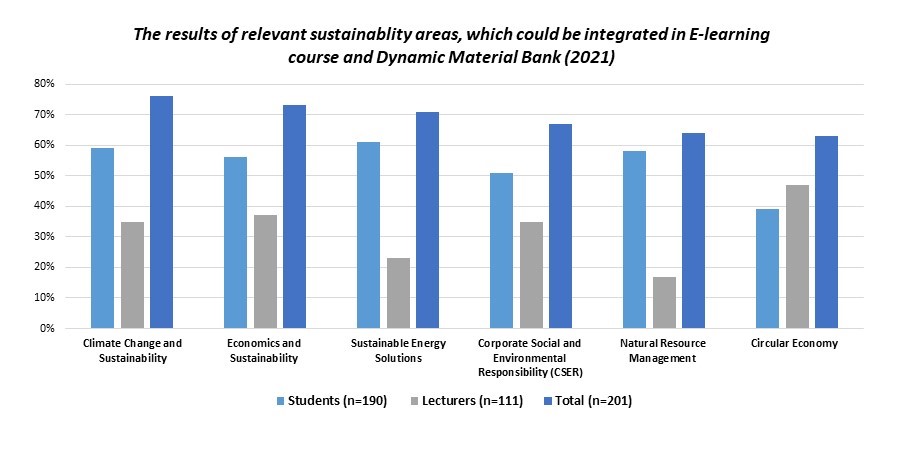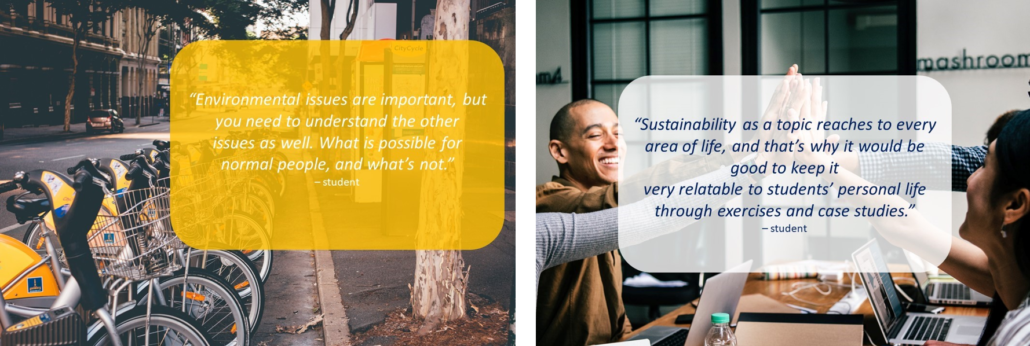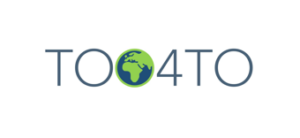Dynamic Material Bank for Teaching, Learning and Practicing Sustainability. Early Development
Sustainable management solutions require a number of interrelated knowledge and skills, including economics, social and environmental science. Accordingly, the goal of the Intellectual Output 2 (IO2) of the “TOO4TO” project is to create a Dynamic Material Bank (DMB). A database, which provides quick access to open-access information, a list of up-to-date sources for organizations across different industries and locations. The tool will be useful for academics and, also, for practitioners. Lecturers from different universities will have an opportunity to integrate DMB into sustainability-related courses and those who wish to develop and align their business practices with the EU-supported SDGs. A periodic updating, relevance and applicability of information sources are necessary aspects that make a database dynamic. It will be ensured by providing the possibility of sharing and uploading additional recent sources by any user.

Concerning a broad scope of sustainability topics and possible variations for subtopics, an essential task for project partners was to ensure a consistent process of forming a concept of DMB, which would be applicable in as various study courses as possible. In the beginning, an indicative survey was carried out in project partners’ countries (Finland, Germany, Lithuania and Poland) to realise the need to study the courses oriented towards Sustainable Management, identify areas and fields of DMB. Indicative survey with students was initiated by Gdańsk University of Technology, Poland, and conducted in cooperation with the Kaunas University of Technology, Lithuania and Turku University of Applied Sciences, Finland. Target groups of the surveys were lecturers and students from different fields of science and studies (management/economics, social science, engineering, IT, arts and humanities, etc.). The first – students’ survey – with general questions was organised in the project proposal stage. Subsequently, a concretised questionnaire was prepared for teachers. The students’ survey was conducted in February and April 2020, with a total of 190 filled questionnaires received, and a second survey, focusing on lecturers, was organised in February and March 2021, with 111 respondents.

Both surveys revealed interesting results about understanding and improving knowledge about sustainability and integrating this topic into specific courses. Most of the students, from the universities already offering sustainability-related courses, agree that there is a need to improve knowledge in corporate sustainability (Finland – 73%, Lithuania – 87%, Poland – 90%). Also, more than a half of the students, who participated in a survey, would consider taking a course in “Sustainable Management”, if it was offered in their universities (Finland – 85%, Lithuania – 58%, Poland – 90%). The need was indicated by the lecturers to integrate DMB in the courses (see Figure 1).

Figure 1. a) Lecturers’ opinion about DMB integration into their courses, n=109; b) Lecturers’ opinion about DMB integration for literature updates in their courses, n=110 (prepared by the authors, 2021)
The most intriguing and exciting part of both surveys was identifying the most relevant sustainability areas, based on which the E-learning course and DMB were prepared. All the respondents were asked to choose three priority areas out of sixteen practicals for their teaching/learning courses. Each of the areas was offered by the project partners and discussed during the meetings. Figure 2 presents summarised general (total), students and lecturers priorities. Summed up results revealed that TOP 3 topics are Climate Change and Sustainability, Economics and Sustainability, and Sustainable Energy Solutions. The Figure also shows the differences between students and lecturers’ priorities. Most students selected Sustainable Energy Solutions for the first, Climate Change and Sustainability – the second, and Natural Resource Management – the third choice.
Meanwhile, the lecturers prioritised Circular Economy as the primary and first topic; Sustainable Production was the second choice, and Economics and Sustainability – the third one. Consequently, concerning the final summarised results, project partners agreed on six main topics as the bases for the DMB to be developed: AI & Sustainability, Corporate Social and Environmental Responsibility, Sustainable Energy Solutions, Circular Economy, Natural Resource Management, Climate Change and Sustainability. In addition, it is necessary to point out that some of the topics, which were not priority ones, will be integrated into the main ones.

This blog post is oriented to describe the procedures of DMB development, not a DMB itself. At the moment, DMB is under the preparation and final revisions. The structure and final guidelines for using DMB will be presented in our next blog posts! The DMB will be opened in October 2021.

Written by Inga Gurauskiene and Gabriele Cepeliauskaite, Kaunas University of Technology Institute of Environmental Engineering.


